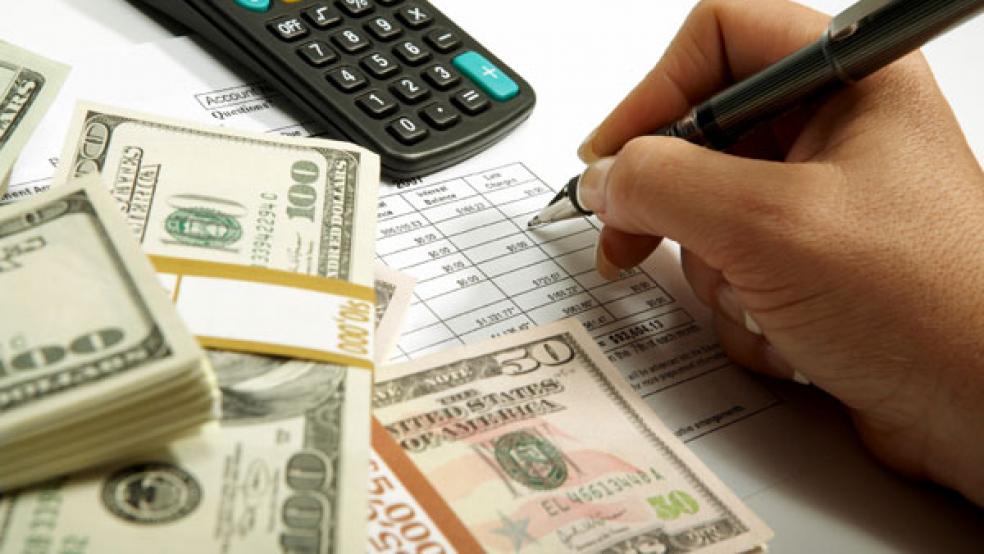Even with the advent of tax software and the relative ease of e-filing, most of us still prefer to get professional help when it comes to settling up with Uncle Sam.
An estimated 60 percent of tax filers turn to pros for guidance on their taxes, a percentage that has remained relatively steady for the last decade.
Related: How Obamacare Could Affect Your Taxes This Year
Some tax preparers concede that those with relatively simple returns, such as workers with straightforward W-2s who don’t itemize, could probably prepare their taxes themselves. Even those filers, however, could be unaware of potentially lucrative credits or deductions for which they could qualify. A study last year by H&R Block found that one in five DIY filers could have owed less or gotten a higher refund, worth an average of $460 per person.
“I probably could install my own light switch,” says Todd Koch, a partner at Minnesota-based accounting firm John Knutson & Co. “But I choose not to because what I don’t know about electricity scares me. I’d rather hire a professional, and I think a lot of people feel that way about tax prep.”
Other filers are uncomfortable with technology or just don’t want to spend the estimated 16 hours it takes to fill out a 1040, according to the IRS, though most taxpayers spend less time. For those with complicated taxes, such as small business owners, high-earners with a variety of investments, or people who have had a recent life change such as a marriage or home purchase, the process can be far more complicated. One bonus of using a pro: Most tax preparers can offer you some advice about moves you can make next year to further reduce your tax burden.
Related: How Well Do You Know Your Tax Preparer?
Getting your return right is not just a matter of avoiding an audit, although that’s a pretty important incentive. Your tax return is arguably your most critical financial document: In addition to determining the amount you owe the government or will receive via a refund, it’s also used to verify income for everything from home mortgages to student loans.
Given the importance of the document, it’s imperative to hire the right tax preparer. You’re legally responsible for the accuracy of a return, even if someone else has prepared it on your behalf. “Hiring the wrong person can be even worse than doing it yourself,” says Steve Warren, a CPA at Minneapolis-based Leherman, Flom & Co. A November report by the National Consumer Law Center, “Riddled Returns,” found “frequent examples of incompetency and fraud by tax preparers – a disturbingly high number, given the limited number of tests conducted.”
Follow these steps to find the right pro:
1. Start with referrals. Reach out to family and friends for recommendations on local tax preparers with whom they’ve had good experiences. If you’re new to an area, check out online review sites like Angie’s List or Yelp to find out how other people have fared with a particular preparer.
Related: Avoid These 10 Common Tax Mistakes
Look for someone who has worked with taxpayers like you. If you’re a small business owner or live and work in two different states, for example, look for a professional who specializes in preparing returns with those situations.
Once you’ve narrowed down your options, run the preparer’s name through the Better Business Bureau to see if she's had any complaints filed against her. Last year, the agency received almost 4,000 complaints about tax preparers, with the most common mistake being return errors that resulted in fines and fees.
2. Understand credentials. There are no federal regulations of tax preparers and only four states have such rules on the books. The Obama administration and the IRS tried to impose new regulations on tax preparers in 2011. Earlier this week, a U.S. Court of Appeals upheld a lower court ruling quashing the proposed test-taking and continuing education requirements.
In lieu of standard rules, a tax preparer’s credentials become even more important. There are certain professional designations – particularly certified public accountants (CPAs) and enrolled agents (EA) – that indicate a person has met a minimum amount of required training and takes continuing education courses given by the IRS to keep up with changes in the law. Lawyers and certified financial planners (CFPs), some of whom specialize in tax prep, must also take continuing education courses.
Preparers who are not lawyers, CPAs or EAs have limited practice rights and in the case of an audit can only represent clients whose returns they prepared and signed; they can do so only at the initial audit level.
All tax preparers must have an IRS-issued preparer tax identification number to legally do your taxes, and they sign their name on your paper return. (If you e-file, the preparer’s name is typically printed on the return; you must also first sign an authorization in order to e-file.)
3. Avoid red flags. Stay away from any tax preparer who promises you a certain refund amount or whose fee structure is based on a percentage of your return.
“Every taxpayer has different income attributes and different deduction attributes,” says M. Kent Moorhead II, a CPA and partner at the accounting firm ParenteBeard. “Tax preparers who say they can get X amount right out of the gate are usually not speaking the whole truth.”
Ask your tax preparer for an engagement letter that spells out ahead of time what services he or she will provide, what they won’t do, and how their fee structure works.
Top Reads from The Fiscal Times:





